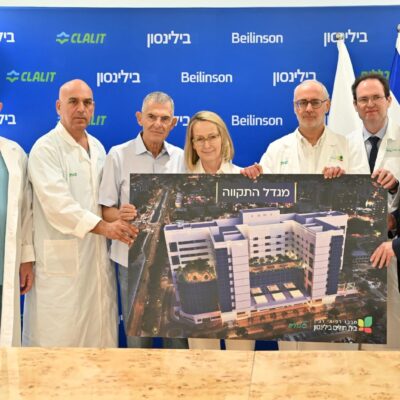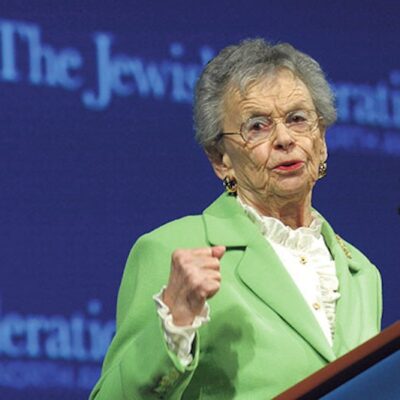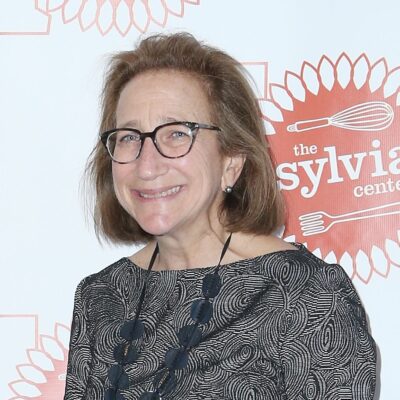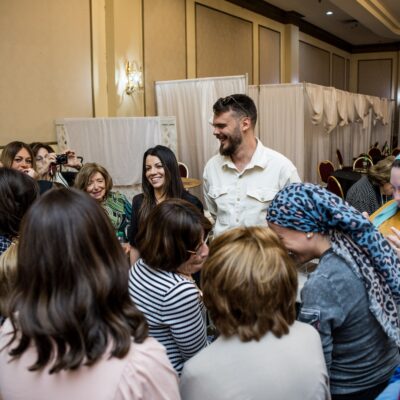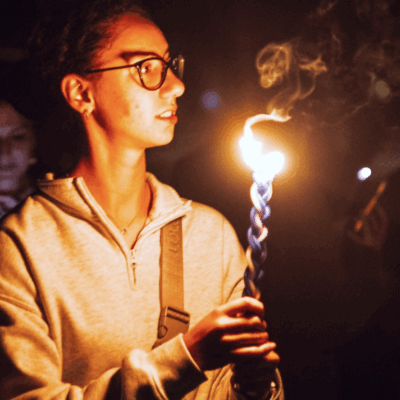Opinion
BACK TO CAMPUS
Unapologetically Jewish and stronger than ever
We’ve seen it time and again: When Jewish students respond to antisemitism not by retreating but by leaning more deeply into their Jewish identity, they change their personal trajectory and the story of the Jewish people. They shift the conversation from fear to pride, from isolation to connection, from defending their existence to celebrating their lives.
Last September, tens of thousands of Jewish students across Ontario packed their bags for their first year at university. Like every new student, they felt a mix of nerves and excitement, imagining late-night study sessions, new friendships and romantic relationships and the independence of campus life. But these students carried with them more than just backpacks and laptops. Many carried a quiet fear, wondering what would it mean to be visibly Jewish on campus.
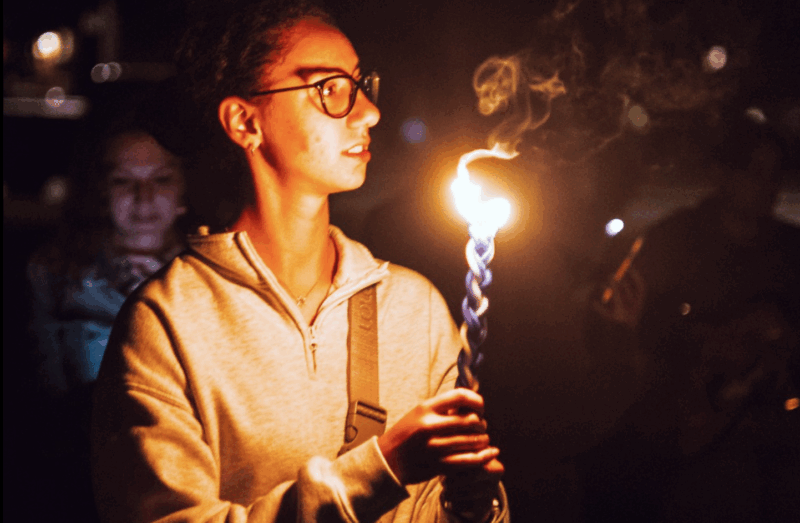
Hillel Ontario/Facebook
A Jewish student participates in a Havdalah ceremony on campus in September 2024.
Would they be able to wear their Magen David necklace or kippah without a stranger accusing them of racism or genocide? Would they have to hide their Jewish traditions or their Zionistic pride just to feel safe? Would they have to check their deeply-held identity at the door simply to fit in?
A year later, while the epidemic of anti-Jewish bigotry rages on, students are returning to campus with a renewed sense of determination. They will live proudly, joyfully and unapologetically as Jews.
As the largest regional Hillel in the world, Hillel Ontario will stand beside them every step of the way.
This fall will mark three years since the Oct. 7 terrorist attacks in Israel, and three years of escalating Jew-hatred on campuses across the Diaspora. Throughout this time, Jewish students have been vilified for wearing Jewish symbols, doxxed for attending pro-Israel programs and harassed simply for being who they are.
Antisemitism is not new. But it has grown louder, more aggressive and more overt in public spaces, including in the very institutions that are meant to be places of learning, growth and respectful debate. Numbers confirm the rise, but they cannot fully capture the human toll: the exhaustion of constantly being on guard; the loneliness of feeling misunderstood; the emotional weight of being judged for our identity.
Even so, we and the students returning to campus refuse to let this be the defining story of Jewish campus life.
This year, our work is anchored in five priorities — each a response to this moment and each a commitment to our collective future:
1.) We will unapologetically celebrate Jewish joy with more people, in more places, than ever before. We believe joy is not just a feeling. It’s a statement. From bustling Shabbat dinners that fill university dining halls with song and laughter, to pop-up Jewish cultural events in unexpected campus spaces, to intramural sports tournaments, we will reach more students than ever before and show them that Jewish life is vibrant, welcoming and unafraid.
2.) We will confront antisemitism with courage and strength. We are expanding our partnerships with campus and community organizations, legal advocates, scholars, security professionals and campus administrators to protect Jewish students and hold accountable those who violate campus policies and the law. We will make sure every Jewish student knows that they are not alone, and we will empower them with the training, resources, and tools required to speak out and stand tall when confronted with hate.
3.) We will innovate and elevate Jewish and Israel experiences. We’re reimagining what Jewish education and Israel engagement look like on campus. That means immersive travel programs, dialogue initiatives with diverse campus groups, and cutting-edge learning experiences that connect students to Israel and Jewish peoplehood in ways that are relevant, inspiring, and unifying.
4.) We will build lifelong Jewish journeys. Our work doesn’t stop at graduation. By mentoring students, connecting them with alumni, and opening doors to leadership roles within and outside the Jewish community, we are helping them see their time on campus not as a four-year chapter, but as the beginning of a lifelong journey of Jewish engagement and contribution. We are doubling down in career and post-graduate initiatives and creating the moments that spark lifelong Jewish relationships.
5.) We will cultivate a culture of connection, growth and leadership. We’re investing in student leaders — training them not just to run programs but to inspire movements. Our campuses are incubators for Jewish leadership, where students learn to listen deeply, think boldly and bring people together across divides. We are doing this work not just because it’s critical for the Jewish future, but also because it’s an imperative of Canadian values.
It has been said that light is the best answer to darkness. Similarly, our colleague Rabbi Aaron Greenberg recently quipped that more semitism — the enthusiastic and joyful celebration of Jewish identity — is the best response to antisemitism. At Hillel Ontario, we will live by this mantra in the school year ahead.
Bev Shimansky is the chief campus and culture officer for Hillel Ontario.
Jay Solomon is the chief advancement officer for Hillel Ontario.


